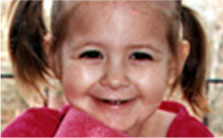Cord Blood Banking
Cord blood banking is storing the stem cells in umbilical cord blood. The cord blood is collected after the baby is born and after any delayed cord clamping. The cord blood can be donated to a public bank for free, where it may help patients seeking a transplant. Alternatively parents can save cord blood in a family bank for a fee, where it may be used for sibling transplants for disorders such as thalassemia, or returned to the baby to help with developmental conditions such as cerebral palsy or autism.
 The term “cord blood” is used to describe the blood that remains in the umbilical cord and the placenta after the birth of a baby. The term “cord tissue” refers to the rest of the umbilical cord. The cord blood, cord tissue, and the placenta are all very rich sources of newborn stem cells. Most of the stem cells in cord blood are blood-forming or hematopoietic stem cells. Most of the stem cells in cord tissue and the placenta are mesenchymal stem cells.
The term “cord blood” is used to describe the blood that remains in the umbilical cord and the placenta after the birth of a baby. The term “cord tissue” refers to the rest of the umbilical cord. The cord blood, cord tissue, and the placenta are all very rich sources of newborn stem cells. Most of the stem cells in cord blood are blood-forming or hematopoietic stem cells. Most of the stem cells in cord tissue and the placenta are mesenchymal stem cells.
Read More »
 Transplants of cord blood stem cells can cure over 80 diseases. Most of the diseases treated by stem cell transplants are rare among children. The exceptions are inherited blood disorders that are prevalent in certain populations, such as sickle cell disease and thalassemia. In recent years trials with cord blood have showed promise for treating more common childhood conditions, such as cerebral palsy, autism, and others.
Transplants of cord blood stem cells can cure over 80 diseases. Most of the diseases treated by stem cell transplants are rare among children. The exceptions are inherited blood disorders that are prevalent in certain populations, such as sickle cell disease and thalassemia. In recent years trials with cord blood have showed promise for treating more common childhood conditions, such as cerebral palsy, autism, and others.
Read More »
 Parents who wish to donate cord blood are limited by whether there is a public bank that collects donations from the hospital or clinic where their baby will be born. Search our list of public banks in your country. Parents who wish to store cord blood and/or cord tissue for their family can find and compare private banks in your country. Family banks usually offer payment plans or insurance policies to lower the cost of cord blood banking.
Parents who wish to donate cord blood are limited by whether there is a public bank that collects donations from the hospital or clinic where their baby will be born. Search our list of public banks in your country. Parents who wish to store cord blood and/or cord tissue for their family can find and compare private banks in your country. Family banks usually offer payment plans or insurance policies to lower the cost of cord blood banking.
Read More »
Shai's Story
 Shai was a feisty little girl whose mother used her scientific background to search for the best approach to cure her cancer. Shai narrowly escaped death many times, including a recovery that even her doctors considered a miracle, yet she died at dawn on the day that she would have begun kindergarten. Her mother went on to found this website and charity in her memory. Read more...
Shai was a feisty little girl whose mother used her scientific background to search for the best approach to cure her cancer. Shai narrowly escaped death many times, including a recovery that even her doctors considered a miracle, yet she died at dawn on the day that she would have begun kindergarten. Her mother went on to found this website and charity in her memory. Read more...
